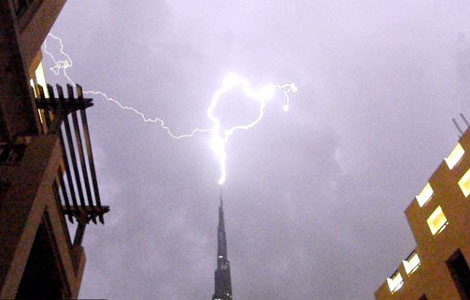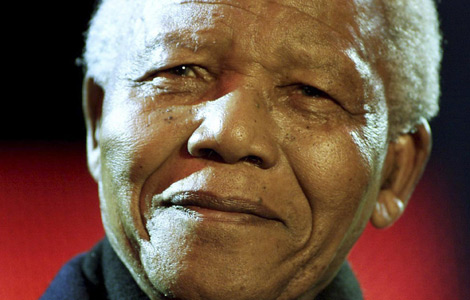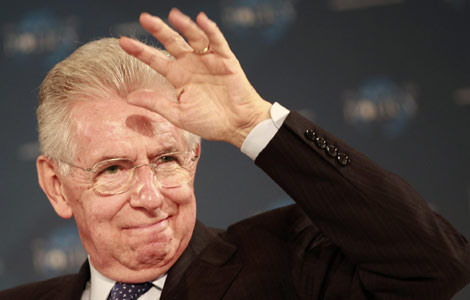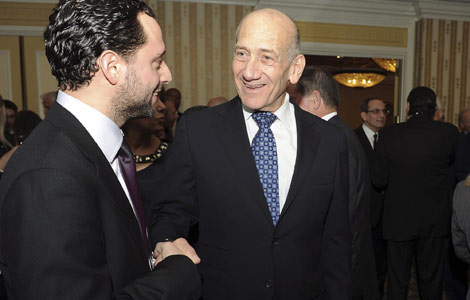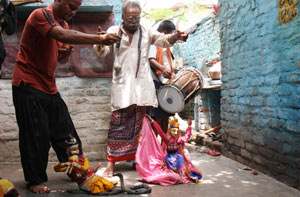
With support for his cabinet and party declining, Japanese Prime Minister Yoshihiko Noda is on the defensive for himself and for the Democratic Party of Japan.
The DPJ president has registered as a candidate for both Chiba's fourth single-seat constituency and the region's proportional representation segment in an apparent bid to increase his chances of re-election in the Dec 16 House of Representatives poll.
![Shinzo Abe, leader of Japan's main opposition Liberal Democratic Party and former prime minister, raises his fist and shouts Ganbaro, or 'Fight', with other party candidates and supporters in Fukushima at the start of his offi cial campaign for the Dec 16 lower house election on Tuesday. [Photo/Agencies] Japan's Noda on the defensive as campaign kicks off in Fukushima](../../images/attachement/jpg/site1/20121205/0023ae9885da1228bdca03.jpg) |
|
Shinzo Abe, leader of Japan's main opposition Liberal Democratic Party and former prime minister, raises his fist and shouts Ganbaro, or "Fight", with other party candidates and supporters in Fukushima at the start of his offi cial campaign for the Dec 16 lower house election on Tuesday. [Photo/Agencies] |
In Japan's upcoming lower house election, a candidate who fails to get elected in a single-seat constituency can still be elected via proportional representation, depending on how many votes his party wins.
Noda's 264 DPJ peers in single-seat constituencies will also run under the double candidacy provision. So will 277 from the Liberal Democratic Party.
Prime ministers rarely register as both single-seat and proportional representation candidates. The last to do so was Yoshiro Mori of the LDP in 2000.
Yoshimi Watanabe, leader of Your Party, said that Noda, who dissolved the lower house on Nov 16, is a narcissist who is playing it safe rather than fighting hard to win or die in a single-seat constituency.
The DPJ and its members are an irritant to some members of the Japanese public. Some voters say they will not vote for them in the proportional segments.
"From the very beginning the DPJ has lost the battle," said a message on the website of the Yomiuri Shimbun newspaper.
"Noda should have the sense of standing on a cliff," another message said. "They (DPJ candidates) are trying to get a ticket by hook or by crook."
The DPJ swept to a historic victory in 2009 with rosy promises, including a monthly 26,000 yen ($317) allowance to households with children, a ban on expressway tolls and a four-year moratorium on any consumption tax hike, despite snowballing debt and social security costs.
Public support for the Hatoyama Cabinet exceeded 70 percent, with high hopes among the people that there would be change.
The government's flip-flops on key policies triggered public outrage, confusion and disappointment in what was supposed to be a wave of change.
At meetings with voters over the past two weeks, Noda and DPJ policy chief Goshi Hosono were busy apologizing for the party's failure to meet some policy pledges made during the 2009 House of Representatives election.
At the Osaka rally, Hosono humbly admitted that many of the DPJ's pledges had not been "sufficiently met". "We have to apologize for what has not been realized yet," he said.
The DPJ's current campaign platform has been described as long on vision but bereft of concrete plans. Noda calls it "flexible and realistic".
Confidence in the party is being questioned.
"The problem this time around is that the DPJ and its leader Prime Minister Yoshihiko Noda are asking us to give their administration a fresh lease without showing us the contract," said an editorial in The Mainichi.
Noda traveled on Tuesday to Fukushima Prefecture — which was heavily damaged by the March 2011 earthquake and tsunami, and where Japan's worst nuclear accident took place — to make it the starting point of his official campaign.
"There will be no revival of Japan without Fukushima being revitalized," Noda said in the northeastern city of Iwaki.
"At issue is whether we will press ahead with what we have to do, or return to the politics of old," he said, asking voters for their support to keep the DPJ in power.
The reporter is the Tokyo bureau chief of China Daily.
Contact the writer at caihong@chinadaily.com.cn

